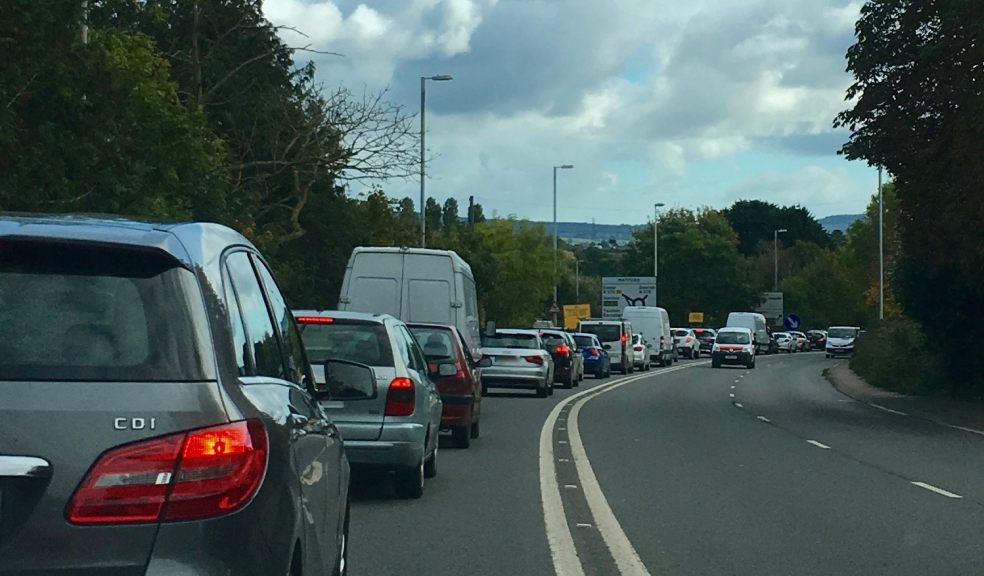
City council to launch consultation on ways to improve air quality and cut congestion
A public consultation is set to be launched on ways to improve air quality and cut congestion in Exeter.
The Draft Exeter City Council Air Quality Action Plan 2018-2023 contains a wide range of proposals to reduce exposure to air pollution and improve health and quality of life.
It aims to discourage private car use and increase use of public transport, cycling and walking. Businesses will be supported in changing travel habits and reducing emissions.
Proposed measures include:
- Supporting a significant upgrade to public transport provision, including a single ticketing platform where possible, new routes and an enhanced passenger experience
- Supporting significant expansion of car clubs and electric bike hire network
- Incentivising employers to adopt best practice and discourage use of private cars
- Restricting which vehicles can enter certain parts of the city at certain times of the day, potentially with a charge for vehicles that do not meet the relevant criteria, focusing on goods vehicles
- Requiring developers to predict the health costs of vehicle emissions and match this cost with spending on mitigation
- Considering the use of traffic management or access restrictions which make park and ride, public transport or active travel more attractive than driving into the city centre
The report states that the City Council is committed to reducing the exposure of people in Exeter to poor air quality in order to improve health, and has developed a vision for the city where emissions are reduced because:
- The private car is seldom used
- Business travel is provided by shared and by Ultra Low Emission Vehicles (ULEV)
- Development creates sustainable car-free communities
- Internal combustion engines are discouraged in a vibrant centre, where active or by Ultra Low Emission Vehicle (ULEV) travel is the norm.
The exposure of people in the city to air pollution will also be reduced because:
- Decision makers have clear understanding of air pollution and its impacts
- Residents, employers and visitors understand the impact of air pollution and the effect of their travel choices
- Healthy and active travel options are promoted
- Everyone is more active
Cllr Rosie Denham, lead councillor for City Transformation, Energy and Transport, said: “Congestion, and the resulting impact on air quality, is a result of a thriving city but if you don’t resolve the problem it severely impacts on our ability to grow and is detrimental to health and quality of life.
“That is why we are committed to becoming congestion-free by 2025, and why we want to consult on plans to improve air quality in the city. We want as many people as possible to engage with this consultation, and want residents to give us their own ideas on reducing congestion and pollution for everyone who lives, works and visits the city.”
The report states that between 2011 and 2016, the period when the last action plan was in place, nitrogen dioxide concentrations have generally reduced or remained stable in the city.
It states that while air quality in Exeter is mainly good, there are a small number of hotspots where levels of nitrogen dioxide are above government objectives, due to volumes of traffic.
These are:
- Livery Dole junction
- East Wonford Hill
- Honiton Road
- Alphington Street
- Blackboy Road/Pinhoe Road junction.
Data from Devon County Council shows that between 2005 and 2015, there has been growth in traffic flows on the strategic road network outside the city. But within the city, the radial routes have seen a reduction in flows of more than three per cent, and the main routes into the city have seen a fall of almost six per cent.
Over the same period, use of rail leading to the city has grown by 77 per cent, and the stations inside the city have seen an increase in use of 98 per cent. There has also been a large increase in the cycle network.
The report highlights that expansion in and around Exeter, including 2,000 new homes near Alphington, while good news for the economy, will put pressure on the highway network.
Transport and emissions-related issues are a priority for the city, and Exeter also has an ambition to become congestion free by 2025, in partnership with Exeter City Futures, and the most active city in England.
Exeter and Cranbrook were recently selected by Sport England to take part in a ground-breaking new approach to tackle inactivity.
The City Council has also made a commitment to air quality by agreeing a budget to replace the existing continuous monitoring stations.
The report highlights good work that has taken place to improve air quality across the city in recent years, including new rail stations, extensions and improvements to the cycling network and measures to reduce emissions from commercial vehicle fleets.
The Draft Exeter City Council Air Quality Action Plan will be discussed by councillors on the Scrutiny Committee (Place) on Thursday, January 11.
Councillors will be asked to approve a three month consultation on the action plan.




















